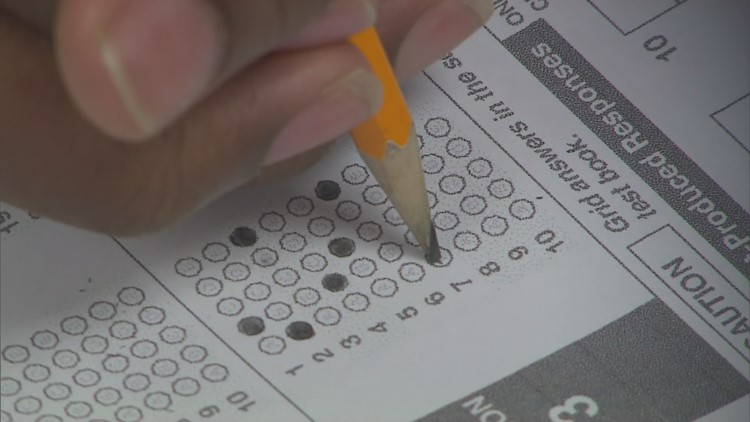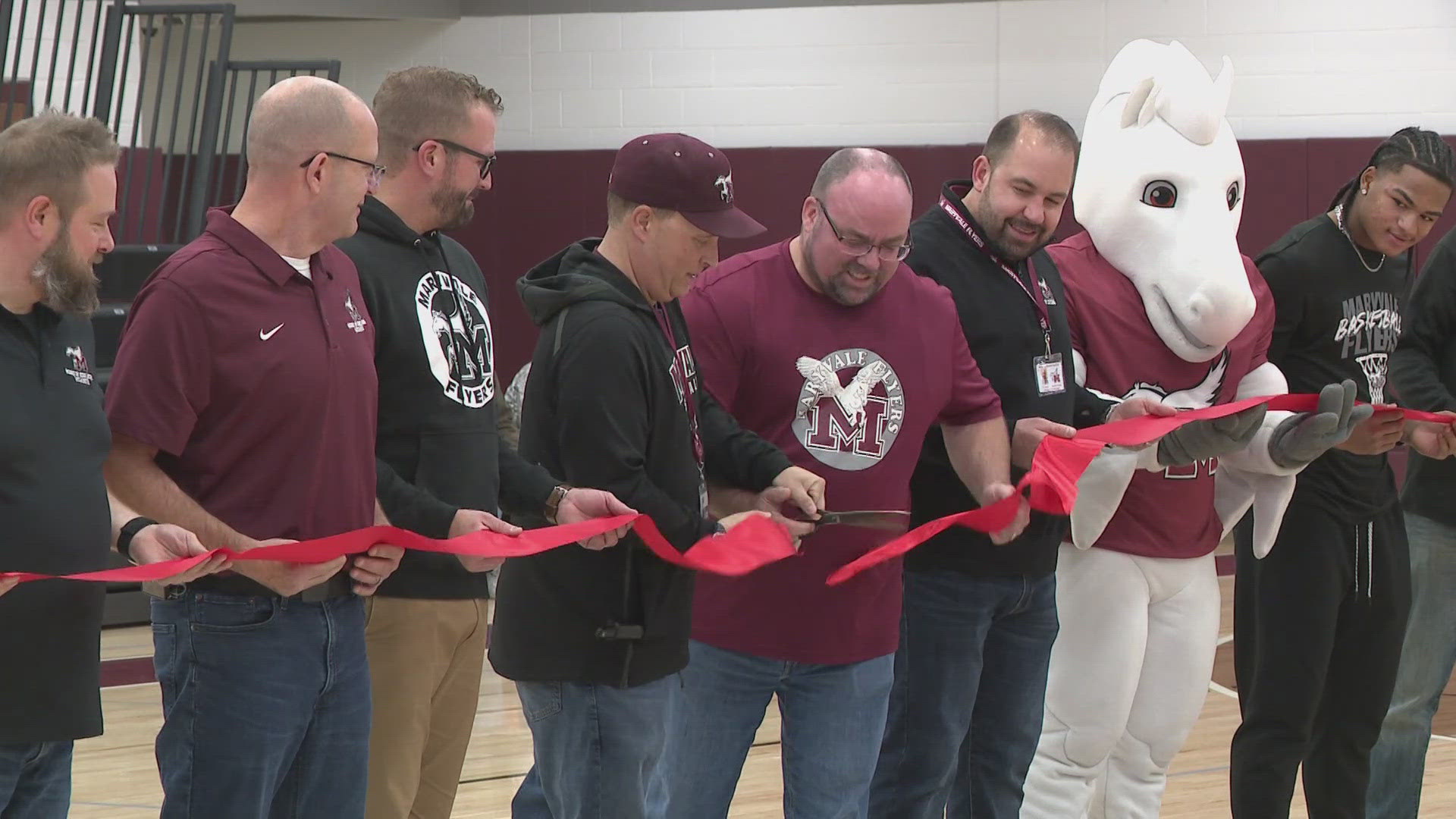ALBANY About a million students across New York will sit for a new round of state testing Tuesday as critics and supporters continue to debate the merits of refusing the exams.
Third- through eighth-graders in public schools this week will take the state's standardized English Language Arts exam, beginning Tuesday and finishing up Thursday. A math exam will be administered next week.
2 On Your Side reached out to about a dozen districts in Western New York. While most did not have an accurate count of how many families plan to opt out, some districts have kept a tally.
West Seneca's assistant superintendent for pupil services says 56% of third through eighth graders there have already opted out, and that was as of Friday. He expects the number to more than double the 30% of students who opted out last year.
The number is much lower in the Niagara Falls City School District, where between 3% and 4% of students have already decided not to take the tests.
And in the Sweet Home Central School District about 9%, or 130 students, have already refused to take the tests.
Other districts we reached out to, including Buffalo and Ken-Ton, don't have a count of how many students plan to opt out. And the director of communications for Lancaster Schools said, "We don't have any notices collected in advance." She went on to say that students who refuse the tests will be able to read silently in their seats.
At an event in Tonawanda, Sen. Marc Panepinto (D-Erie) and Assemblyman Ray Walter (R-Amherst) said they'd like to see 250,000 students opt out of the test statewide.
"No teacher will tell you they shouldn't be evaluated," Walter said, "but are standardized tests the way to do that?"
On Monday, State University of New York Chancellor Nancy Zimpher pushed back against parent and union groups leading an effort to have parents opt their children out of the exams, arguing that the tests have become a "pawn in political debates."
Zimpher's push came a day after an automated phone call went to thousands of parents across the state, urging them to refuse the tests. The call was backed with $17,000 raised through an online fundraising effort organized by a retired New York teacher.
The call featured former gubernatorial candidate Zephyr Teachout, a critic of the state's system of testing.
"I believe high-stakes testing is really hurting our kids," Teachout said in the call. "And you have a constitutional right to refuse them without any negative consequences to your kids or financial loss to your school."
Supporters of the opt-out movement say refusing the Common Core-aligned tests sends a message to state leaders, with parent groups expressing frustration with the state's reliance on "high-stakes" tests and the New York State United Teachers union angered by a recent move to make teacher evaluations more reliant on student test scores.
But the state's education leaders say opting out is the wrong choice.
The tests are "a way to measure what students know so we can help them improve," Zimpher wrote in an essay Monday.
"It's up to us to make sure that we are preparing our kids to succeed," she wrote. "Opting out is not a choice that leads to success -- not in college, not when it comes to finding a job, and not in life."
It's not clear how many students will opt out of the exams statewide, though some districts -- including Fairport in Monroe County and West Seneca in Erie County -- are reporting opt-out rates of greater than 50 percent.
Last year, about 1.1 million students in grades 3-8 took the state's math and English exams. The last round of testing came as parent anger persisted over the state's rollout of the Common Core education standards, which was widely criticized.
About 67,000 students who did not take the exams had no "known, valid" excuse, according to the state Education Department. The same was true for about 49,000 on the English test.
Organizers of the opt-out effort expect those numbers to grow significantly this year.
Business groups are among those fighting the movement to refuse the tests, arguing that exams help show how prepared students are for college and careers.
Heather Briccetti, president and CEO of the state Business Council, acknowledged higher education standards are "challenging," but said they will ultimately allow students to be "more competitive."
The Business Council is one of several business groups who helped start High Achievement New York, a coalition formed to bolster support for the Common Core and state tests.
"The opt-out is so irresponsible, because what it is is saying: Cover your eyes, cover your ears, let's not find out how our kids are doing," Briccetti said. "I just cannot imagine that there is any conceivable way that it would benefit the kids."
Several parent-led groups disagree, including the New York State PTA, which says it should be up to the parents to decide whether their kids take the tests.
"Every parent needs to gather the facts and make a decision that's best for their own kids," Rick Longhurst, executive administrator of the state PTA, said Monday. "We're not urging not to opt out and we're not urging them to opt out, but we're asking them to become informed and make the best decision in the interests of their child."
The state Education Department has threatened the possibility of sanctions for school districts that have less than a 95 percent participation rate on the exams, the minimum to meet the federal government's "adequate yearly progress" mark.
Those sanctions could include the possible withholding or diversion of some federal funds for schools, but only in egregious cases over a period of time.
The latest round of testing comes two weeks after the state Legislature and Gov. Andrew Cuomo approved a $142 billion budget that included a number of changes to the state education department, including the revamped teacher evaluation system and a new program to allow for a takeover of long-struggling schools.
In an interview Monday with Gannett's Albany Bureau, Assembly Speaker Carl Heastie, D-Bronx, said parents are concerned students are "being taught to an exam instead of subjects."
"I think that's their frustration," Heastie said. "Overall, it's something we're going to have to look at as a government. To have a situation where some kids are taking an exam and some are not, I don't know if that's a solution."



